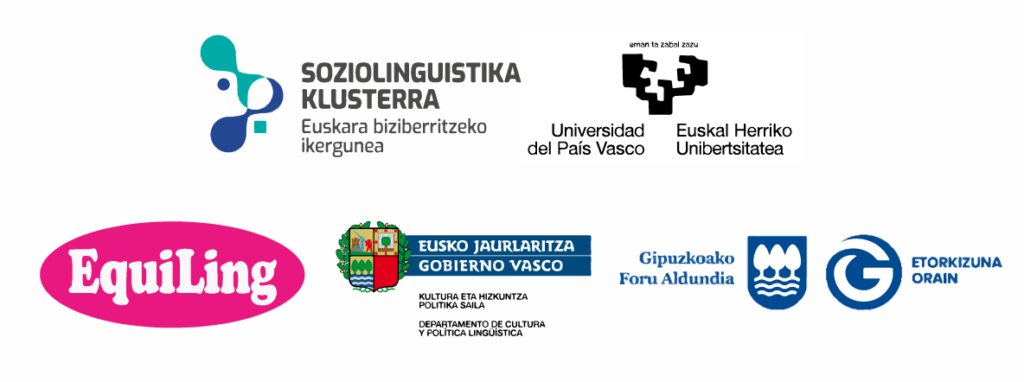Basque is used primarily in the tasks of running the club and in its sporting practices, with relations being based on both. Management and supporters keep the club going; sports people and coaches personify its sporting practice. Languages are interwoven with this complex network. Languages are essential because clubs – in the broadest sense – are places for socialisation, communication and education. Basque has different features and weight in each area.
In the case of children (especially younger ones) and adolescents, there is more of a tendency to talk Basque, and this is most widespread when the coaches know Basque. In these cases, sport is seen as being closer to school: thanks to school Basque is spreading among the younger generations, and this is also reflected in the sporting sphere. This is seen as a natural trend, but there are obstacles along the way. Two are highlighted: firstly, the fact that Basque-speaking coaches can often not be found; and secondly, the fact that the young people’s language ability and motivation sometimes seem scant. All this leads to a variety of situations. In some teams Spanish predominates. In others the two languages alternate. And finally, there are some teams that work in Basque, under the influence of both coaches and their members.
Just as they do on the pitch or court, different situations arise in the club offices. Among the main language challenges mentioned are internal and day-to-day operations, as with a few exceptions internal communication and dynamics take place in Spanish. In the club’s linguistic landscape, in its sports facilities and offices, for example, both languages – Basque and Spanish- are present. In general in external communication (messages, nuws and so on), Basque has an important presence. Club websites and social networks are proof of this.
However, in the absence of a language management protocol, it is something that is decided on the fly in each case. If there is no clear criterion at the club, it is all attempts, wishes, desires or suppositions. And often it is not easy to get it right.

